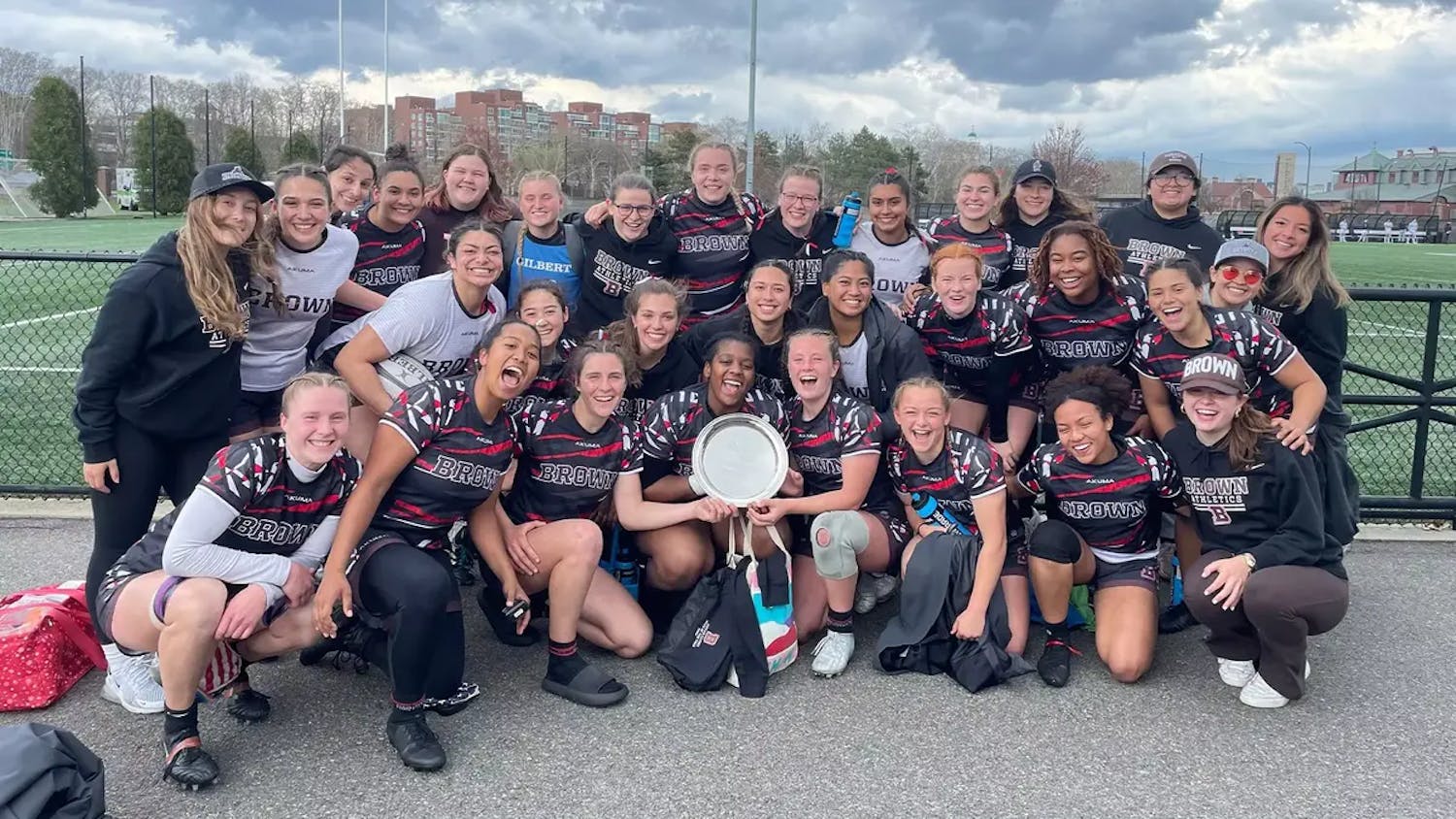"Sports are a business."
This is the quote that is always thrown out when a team imposes something particularly cold or ruthless on a player or vice versa. If sports is a children's puppet show, then the executives who own and operate the league are the balding puppeteers who are nursing a healthy buzz behind the curtains. Though we know the business executives are there, we as fans traditionally tend to pretend they aren't. A television show doesn't pan around the set showing make-up artists, cameramen and personal assistants, even though they are essential to producing the entertainment on screen. Likewise, people are interested in sports teams not because of the money involved, but for the athletes playing the game.
Then came the "Moneyball" generation — my generation. Following in the footsteps of Bill James' turning athletes into stats and numbers, financial writer Michael Lewis wrote a book about baseball and how the Oakland A's used knowledge only they had to make a winning team with limited resources. This was genius to fans of this generation. Maybe we couldn't play the sports we loved so much, but we could absolutely get to know them better than anyone else. After all, isn't that what a business is about? Getting information no one else has — by being smarter or otherwise — to gain a competitive advantage?
So everyone, myself included, sat around on message boards and stats websites, figuring out which players would be best for our teams and discussing them with other people. Suddenly, these human beings that we had come to love as players dissolved into shooting percentages, yards after carry, on-base percentages or some other stat. Winning was suddenly the only important part of having a team, and these cold numbers contained the formula to do that.
Then Peyton Manning announced he wasn't coming back to the Indianapolis Colts. In that moment, everything about sports, winning and business became all too real. As a New England Patriots fan — and by extension a Tom Brady fan — I've disliked Manning for much of his career. He's the sole roadblock to Brady's claim of "greatest quarterback of all time." During the good old days, I would acknowledge how silly it was for me to dislike a class act like Peyton. He played in a town not known for it's football chops. I never doubted that he was the hardest working guy on the field. He was always goofy, humble and polite, and that made him tremendously accessible. He was also so ingrained in his franchise that I couldn't possibly imagine him anywhere else. He was a Colt.
Now, to save money and give themselves a better chance to win, the Colts are going to drop Manning and likely draft Andrew Luck. They will cut the man who did more for that franchise than any other player did for their own. Already reports are rolling in about other teams calling in to sell themselves to Peyton.
I tell myself that the whole thing makes me sick. It seems disrespectful to such a great career to lower it to some sort of SportsCenter sideshow. It's like hitting on a widow at a funeral. Is winning really more important than the positive feelings and nostalgia created by enduring the highs and lows with these athletes? Are these larger-than-life figures our champions whom we place our unwavering support in, or are they assets to be used to push our symbolic colors and logo to the highest winning percentage before shedding them for better ones?
That's when it hits me — I want sports to be television and movies. If this were a Hollywood script, Colts owner Jim Irsay would meet with the cocky Luck 15 minutes before the end of the movie and realize what a horrible mistake he's made. He would show up at Peyton's house and recount the famous speech from Jerry Maguire, before Manning cuts him off to tearfully reply, "You had me at hello." In the movies, feelings and relationships triumph over the obstacles that are thrown in people's way and the characters realize the human condition is defined by those around them.
Sports are not a movie. Sports are real life.
Real life is about existing within civilization and exchanging your specific skill set for that of others. Money is how we carry out these transactions. Business is application of Darwinian law to money. The most efficient and best working model will succeed, whether that means surviving or making money. For sports executives, the best business model is to win games.
I have known these points for a long time. They are ideas that I don't think are wrong or morally incorrect because they are facts that got us to this stage of human evolution. I'm a Moneyball generation kid. A guy who wanted to trade Rajon Rondo for Chris Paul in the offseason because he had superior numbers. I've always understood what winning takes in professional sports. I've always known the puppeteers were behind the curtain the whole time.
So why does it bother me so much that the puppeteers have torn the curtain away?
Over Christmas break, I had settled in to watch the Boston Celtics' season opener against the New York Knicks. Halfway through the second quarter, my 19-year-old sister took a seat on the couch and patiently waited for the game to hit the halfway mark so she could watch her DVR'd episode of "How I Met Your Mother." After a pan down the Celtics' bench by the camera, she looked at me, puzzled and asked, "Where is Big Baby?" I scoffed and told her that the player in question, Glen Davis, had been traded in the offseason. She was horrified by my dismissive tone and replied, "That's awful!" I shrugged and explained to her that we had flipped Davis for the better Brandon Bass and that I was behind it 100 percent. Bass was better then Davis at pretty much everything.
She looked at me and said, "But Big Baby was a Celtic."
But we had a chance to turn him into one more rebound a game and a better shooting percentage. We had to do it. That's how you win games after all.
Sam Sheehan '12 is probably just bitter about Peyton Manning coming to the AFC East. Talk sports with him at sam_sheehan@brown.edu or follow him on Twitter @SamSheehan.




